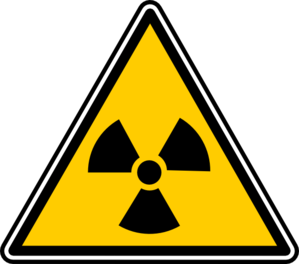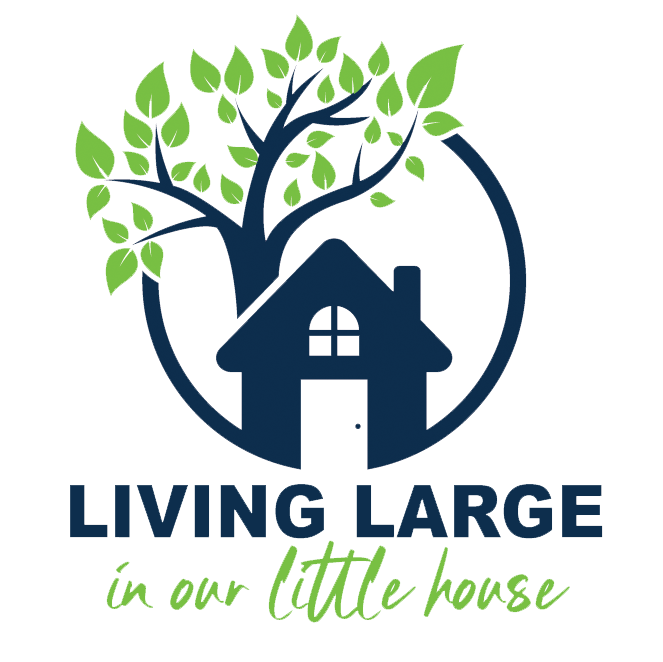We, the People
I apologize to anyone who tried to comment the other day and could not. Gremlins seemingly took over and changed the settings on the site. Everything should be good now. If you are still experiencing problems, please let me know: fivecoat@ozarkmountains.com We don’t want anything interfering with the lively discussions we get going here at Our Little House community!
_____________________________________________________________________
As everyone is in the world, Dale and I have been watching the horror unfold in Japan for almost a week now. The images coming into Our Little House of the destruction are really too horrifying to comprehend and I’ve been moved to tears more than once.
Our thoughts are certainly with the people and all living creatures there.
From the very first moment we heard about the failure at the nuclear plants, we’ve been bewildered as to why such unstable and potentially unsafe reactors were built on a coastline with not hundreds, but thousands of years of recorded earthquakes and tsunamis. One report focused on the fact that the Japanese didn’t even build anything next to the coasts until well into the 20th century because of the high risk of apocalyptic disasters such as the one we are witness to now.
This article, which features an interview with a former nuclear industry executive, is really frightening.
America, nor I imagine, other countries, are immune from such shortsighted planning and pillaging of natural resources. We only have to look toward our own coasts and fault lines to see our country has done the same.
As for pillaging and destroying natural resources, we only have to look toward our own state of Arkansas, where natural gas companies have been ordered to suspend a drilling process called “fracking” as there is some evidence the process has been responsible, at least in part, for over 800 earthquakes that have shook our state, the largest last month measuring 4.7.
Fracking is a process by which water is pumped deep into the shale of the earth at high- pressurized rates, which cracks the shale and releases the gas. Some scientists believe – although the companies and natural gas industry is predictably saying it isn’t so – that the increase in drilling near the New Madrid Fault and other nearby faults, have lead to the increase in seismic activity in recent months.
My completely unscientific reaction is “Well, duh.” I’m not quite sure why we would not expect Mother Earth, a living, evolving planet, to react in some way to literally being cracked from the inside out.
It seems to me that rather than continuing to build plants that even if were completely disaster proof, would still pose a threat with radioactive waste and drilling to break the core of our planet, we should instead learn to live within our energy means and figure out a better way.
However, I don’t foresee this happening anytime soon because it is “We, the People,” who have developed a glutinous, addicted appetite for energy, using it as if we don’t have a care in the world about how we will get more or from where.
As a result, we haven’t demanded anything more of our policy makers in energy decisions. Congress itself even recently reversed sweeping environmental changes within their own lunchroom because some thought it too cumbersome to use biodegradable paper dishes and flatware.
So, instead of bringing their own reusable plates and silverware and (gasp) washing them, or maybe donating a portion of their salaries to hire a dishwasher, they went back to Styrofoam and plastic.
Energy efficiency and sustainability, like everything else, has adopted the NIMBY (Not in my Backyard) policy. It’s ok as long as it doesn’t inconvenience “me” in any way.
It is We, the People, as it was in the beginning of this country, who needs to buckle down and make the hard choices. We are going to have to adopt a different lifestyle, each of us making the small changes, even if it is just combining trips so we aren’t hopping in our cars for more than one trip a day, using cloth grocery bags or turning off the lights and electronics when not in use.
For those of us who can financially afford to do so, implementing bigger changes such as installing energy efficient appliances, HVAC systems and buying hybrid vehicles will help even more.
Only then will we be able to demand that our government officials follow We the People’s lead, showing them we are serious about finding a better way to avert such disasters again.
How have you been feeling since the disaster in Japan? Do you worry about nuclear fall out and America’s current course of intending to build more nuclear energy plants?









Hi Kerri, The Terrierman (another blog I visit) made an interesting post about how no one, not even the “green” advocates, address the problem of overpopulation. Japan is massively over populated, having grown from 45 million people in 1900 to 127 million today. All these people living in an industrialized nation need…energy. Japan is certainly not the only nation to sin from not addressing population control, probably due to it’s unpopular political connotations (even the phrase “population control” sounds negative). But we cannot save the planet by turning a blind eye to uncomfortable problems.
Anyway, here is the link to the post if you are interested: http://terriermandotcom.blogspot.com/2011/03/turning-japanese.html
Thanks for the link and thank you for bringing up this important subject. When Dale and I were deciding if we were going to have children, our thoughts were always with adoption. I have the same idea about humans as I do with pets. There are so many and the more that are born the more resources we use. We decided if we were to have children we would adopt one that was already here and didn’t have a family. You’re right, this is an important element left out of the problem.
I am shocked about Congress. Glad you wrote about this. It is constantly on my mind, with my grandkids on the west coast. I feel so sorry for the people of Japan. We need to all start paying more than lip service to the environment. Fracking is awful. We had a a guest here last year, a Congresswoman from PA where a lot of the fracking is also going on. I gave her a copy of Our Stolen Future and tried to discuss fracking. I was made to understand that word had gone out that the country needs natural gas, no matter what. Eh??? Destroy the water table so we can have home-produced energy? How about promoting conservation of resources? What is wrong with our leaders? I hate to hear that they are eating on styrofoam!
Thank you, Alexandra, for the link to the article I used in my blog post today. What an eye opener. We thought people were really being hysterical over potassium iodide until I read that.
As for our government “leaders,” they do what they do because we don’t hold them accountable! Instead of actually leading by example, they cry because the biodegradable plates and flatware didn’t hold up to hot soup. Instead of finding another remedy that would actually help the planet, they go backwards. If I’m not mistaken, they’ve also reversed or intend to reverse the course on energy savings within the capital building. This has to stop, or your grandkids or ours will not have a future.
The worst part (to me) about fracking is that it’s not just water that’s sprayed into the fissure. There’s chemicals involved. Chemicals that are NOT disclosed and nobody in a position of power is pressing the gas companies to disclose that information. They say, “Oh, don’t worry–it’s not harmful”.
Oh really? Prove it.
When I began reading about fracking I wondered if water was the only thing being shot into the earth. If it isn’t harmful, they would disclose it.
From what I heard on NPR, the Japanese nuclear site in question was built to sustain a 6.9 earthquake. The backup generators that were supposed to continue cooling the reactor were either damaged in the quake or their electrical infrastructure was. And unfortunately, the batteries that were pumping water for the first few hours were only designed to last 4-8 hours. It’s really too bad that in that time, a more robust temporary solution could not be implemented–and I would expect that in the future, we’ll see more accessible backup cooling solutions.
Regarding hybrid vehicles…I don’t consider them a part of the solution. Case in point, my mother traded in her 100,000 mile, 5-year-old Ford Focus wagon to get a 2010 Prius. There was nothing wrong with her Focus, but it was coming up on needing a new timing belt and water pump, about a $1000 job. After that, it would have been mechanically good for another 100,000 miles. The Focus was paid off and now she’s got another car payment. Granted, little things start to go on car with that many miles, but over the next 5 years, it sure would not have added up to the $25,000 cost of the Prius. Yes, the Prius gets an average of 20mpg better than the Focus, but the fuel differential costs over 100,000 miles are not that substantial–around $5000 when you compare 30mpg to 50mpg at 3.50/gallon, and even less as fuel gets cheaper. But by that time, you’re going to probably have replaced your battery packs, and paid for all those spendy Toyota-brand parts when it breaks under normal use. You may break even using a hybrid. But using extra natural resources to break even is not a step forward. It’s not even a step sideways.
The real solution, IMO, is to use city-based car-sharing services and elsewhere, buying smaller, older (mid-90s and up) cars. My Neon has never gotten worse than 23mpg (normally 27) and when I bought it, the earth had already borne it. We use it as a family car, commuter car, and run-about-town.
Excuse me, the plant was rated for a 7.9 quake, not 6.9.
You’re right, Mat. I should have qualified that. Getting rid of our perfectly good (when the body is repaired) paid off 1988 S10 Blazer and dumping it into a junk yard for a hybrid that would take many new resources to produce doesn’t make sense for us either. Nor would it make sense for us to have a vehicle at all if we lived in a city with adequate public transportation and/or the possibility of being within walking distance of most needs. However, if people are going to be buying new anyway, I think it still makes sense to check out the hybrid option.
The thing is that hybrids–and I’ll use the example of the Prius, since I’ve got experience with it–are in kind of a weird market position (with the exception of the Fusion and the Tahoe)–they’re compact cars. And most compact cars are getting really fair mileage these days, especially as carmakers are required to up their average fleet mileage to 35mpg. And it’s not like trucks are going to get 35mpg, they’re going up to 25. Which means that for every truck, there’s got to be a compact sold that gets 45mpg. That’s knocking right on the Prius’ door. And the Prius is the MOST fuel efficient hybrid on the market. There’s currently conventional offerings that get better gas mileage than the Honda CR-Z.
I still firmly believe that until hybrids (like the diesel-electric ones in ‘Yurp) are getting 60+mpg, they are far from a legitimate alternative to a clean-running 4-cylinder compact car. An $18,000 Focus Hatch is going to give you the same amount of space as a $25,000 Prius and probably give you about 12-15 years towards the fuel cost differential.
Thanks for your thoughtful posts. You’ve definitely done your research!